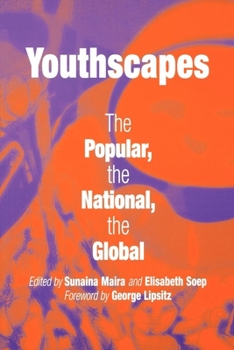Youthscapes: The Popular, the National, the Global
Select Format
Select Condition 
Book Overview
Young people, it seems, are both everywhere and nowhere. The media are crowded with images of youth as deviant or fashionable, personifying a society's anxieties and hopes about its own transformation. However, theories of globalization, nationalism, and citizenship tend to focus on adult actors. Youthscapes sets youth at the heart of globalization by exploring the meanings young people have created for themselves through their engagements with popular cultures, national ideologies, and global markets.
The term "youthscapes" places local youth practices within the context of ongoing shifts in national and global forces. Using this framework, the book revitalizes discussions about youth cultures and social movements, while simultaneously reflecting on the uses of youth as an academic and political category. Tracing young people's movements across physical and imagined spaces, the authors examine various cases of young people as they participate in social relations; use and invent technology; earn, spend, need, and despise money; comprise target markets while producing their own original media; and create their own understandings of citizenship. The essays examine young Thai women working in the transnational beauty industry, former child soldiers in Sierra Leone, Latino youth using graphic art in political organizing, a Sri Lankan refugee's fan relationship with Jackie Chan, and Somali high school students in the United States and Canada. Drawing on methodologies and frameworks from multiple fields, such as anthropology, sociology, and film studies, the volume is useful to those studying and teaching issues of youth culture, popular culture, globalization, social movements, education, and media. By focusing on the intersection between globalization studies and youth culture, the authors offer a vital contribution to the development of a new, interdisciplinary approach to youth culture studies.Format:Paperback
Language:English
ISBN:0812218965
ISBN13:9780812218961
Release Date:November 2004
Publisher:University of Pennsylvania Press
Length:296 Pages
Weight:1.04 lbs.
Dimensions:0.8" x 6.1" x 9.1"
Customer Reviews
0 rating





